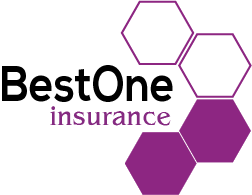Choosing the right local insurance broker for your needs is an important decision that requires careful consideration. With so many options available, it can be overwhelming to know where to start.
However, by following a few key steps, you can ensure that you find a broker who not only meets your insurance needs but also provides the level of service and expertise that you require. By the end, you will have a clearer understanding of navigating the process and making an informed decision.
Assessing Your Insurance Needs
To accurately assess your insurance needs, it is essential to carefully evaluate your risks and determine the appropriate coverage for your specific circumstances. This process involves determining coverage requirements and identifying potential risks that could pose a financial burden if not adequately protected.
Determining coverage requirements requires a comprehensive analysis of your assets, liabilities, and potential liabilities. This includes assessing the value of your property, such as your home, car, or business, as well as considering any potential legal or financial obligations you may have. For example, if you own a business, you may need coverage for property damage, liability, and workers’ compensation. On the other hand, if you are a homeowner, you will likely need coverage for your dwelling, personal property, and liability.
Identifying potential risks involves considering the specific circumstances that could lead to financial loss or liability. This could include factors such as your location, the nature of your work or business, your lifestyle, and any potential hazards or vulnerabilities. For instance, if you live in an area prone to natural disasters, you may need coverage for flood or earthquake damage. If you have valuable possessions, you may need additional coverage for jewelry, art, or collectibles.
Researching Local Insurance Brokers
When researching local insurance brokers, it is important to consider their experience, reputation, and range of services offered. Finding reliable brokers is crucial to ensure that you receive the best coverage and support for your insurance needs. Start by checking the broker’s experience in the industry.
Look for brokers who have been in business for several years and have a proven track record of success. This indicates their ability to navigate the complex insurance landscape and provide valuable advice to their clients.
Another important aspect to consider is the broker’s reputation. Look for reviews and testimonials from their clients to get an idea of their level of customer satisfaction. A reputable broker will have positive feedback, indicating that they are reliable and trustworthy.
It is also essential to understand industry regulations when choosing a local insurance broker. Brokers should be licensed and regulated by the appropriate authorities. This ensures that they operate within legal guidelines and adhere to ethical practices.
You can check with your state’s insurance department to verify the broker’s license and any disciplinary actions taken against them.
Lastly, consider the range of services offered by the broker. Look for brokers who offer a wide range of insurance products to meet your specific needs. This ensures that you can rely on them for all your insurance requirements, whether it be auto, home, or business insurance.
Evaluating and Comparing Broker Options
When evaluating and comparing broker options, it is important to carefully consider their qualifications, expertise, and specialization in order to make an informed decision. Analyzing expertise is crucial because insurance brokers with extensive knowledge and experience in a specific industry or type of insurance will be better equipped to understand your unique needs and provide tailored solutions. Look for brokers who have relevant certifications, memberships in professional organizations, and a track record of success in handling similar cases.
Another important factor to consider is comparing fees. While cost should not be the sole determining factor, it is essential to understand the fees associated with the broker’s services. Some brokers charge a flat fee, while others work on a commission basis. Make sure to ask about any additional charges or hidden fees that may apply.
Additionally, consider the value you will receive for the fees charged. A broker who offers comprehensive services, such as risk assessments, claims management, and ongoing support, may justify higher fees if they provide added value and peace of mind.


